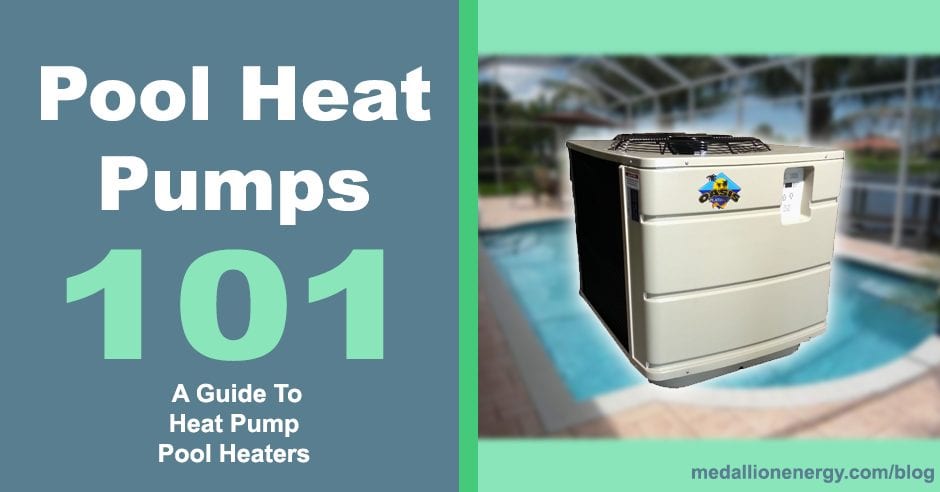Have a few questions about heat pump pool heaters? Wondering how they work?
Find the answers in this post
If you’re reading this post then you likely fall into one of three categories:
- You’re a pool owner who’s thinking about switching from gas or solar, to heat pumps
- You’re a first-time pool owner looking for a reliable pool heating system
- You’re an ambitious web surfer aching to discover just how much you really need to know about heat pump pool heaters
If any of those sounds like you, well then, good news. You’ll find the answers to all your questions and more in this post. And if you’re looking to make a decision about which pool heater is best for you, the information laid out here will make it much easier. Of course, you could always just check out the pool heater comparison we wrote for that very reason.
But let’s get back to the focus of this post, pool heat pumps. They’re one of the most popular pool heating options available today, yet not everyone knows exactly why that is. Sure, they have a reputation for being energy efficient, but what is it that causes so many people to choose them over all other options? Oftentimes, even over the faster options.
That’s the real question to ponder as you continue reading. But don’t worry, the answer should come to naturally by the time you finish the post.
And on that note, let’s get right into it.
Heat Pumps 101
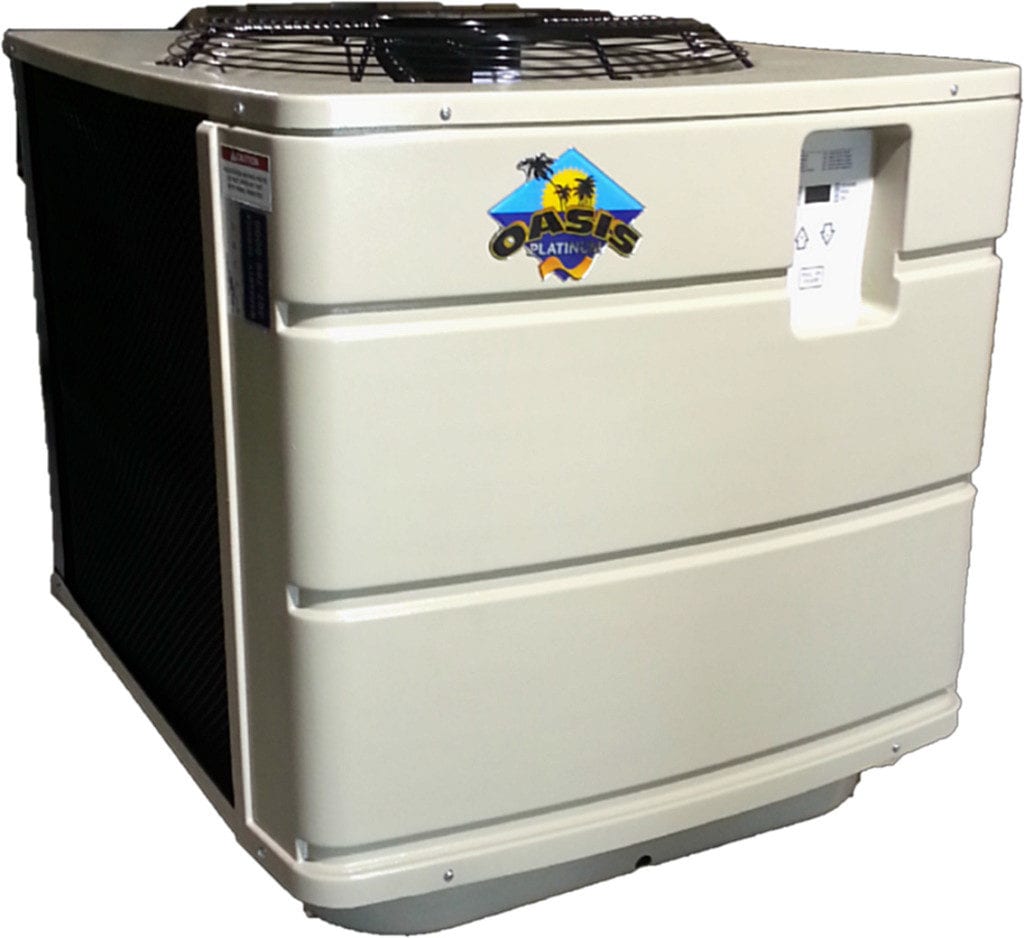


How does a heat pump pool heater work?
A heat pump’s heating process begins with the fan at the top of the unit. As the fan starts spinning, it generates heat energy, drawing in warm, natural air from the environment. From there, the warm air gets pulled into an evaporator coil. The coil contains a special refrigerant that, when combined with heat energy, creates a warm gas.
The warm gas created by the refrigerant system travels to a compressor where it’s compressed and heated to a hotter, useable temperature. Once fully compressed, the hot gas makes it’s way to the heat exchanger.
This is where the heat transfer takes places. As the hot gas travels through and heats the inner titanium tubing within the exchanger, pool water flows through the outer plastic tubing. As this happens, the heated titanium tubing transfers heat to the water, which then flows out of the heat pump and back into the pool.
And that, in a nutshell, is how the magic happens. But, if you want to learn more about the process, check out: How Heat Pumps Work
What size heat pump do I need for my swimming pool?
The heat pump size you’ll need depends on the size of your pool, the shape, and your location. Below is a quick reference on heat pump sizing for a rectangular pool.
- 10,000 gallons then you need a 50,000 – 65,000 BTU heat pump
- 15,000 gallons then you need an 85,000 – 110,000 BTU heat pump
- 20,000 gallons then you need an 85,000 – 125,000 BTU heat pump
- 25,000 gallons then you need an 110,000 – 150,000 BTU heat pump
Keep in mind that the above numbers are estimates. For the most accurate sizing, we recommend reading our post on how to size a heat pump pool heater.
If you aren’t sure how many gallons your pool is, or just to make sure you size correctly, we’re happy to do the pool heater sizing for you.
How much does it cost to put a heat pump pool heater in a pool?
The installation cost of a heat pump pool heater ranges from a low of $1,500 to a high of $5,000.
Note that this number depends on a few factors, including heat pump size, electrical/plumbing work needed, and location
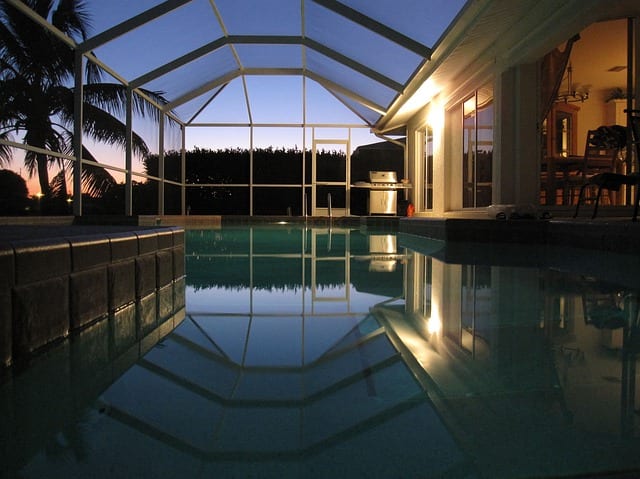


How much electricity does it take to heat a pool with a heat pump pool heater?
Pool heat pumps offer affordable heating at $50 – $150 per month. The higher number represents peak use. For most pool owners, heating costs will usually stay on the lower end throughout the year.
On that note, you can easily double the energy efficiency of any heat pump pool heater by simply using a solar cover. The improved heat and water retention your pool gains from using one take a huge load off of the heat pump’s heating duties.
How I often should I do heat pump maintenance?
Even if you never service it once, your heat pump can easily last 10-20 years. But what if we told you that good pool heater maintenance is the key to doubling, if not tripling your heater’s lifespan?
Well, the fact is, good heat pump maintenance is everything. So, the best way to maximize the life of your heat pump is to have it serviced at least once a year.
Much like your car, an annual service call is essential to avoiding those problems that can creep up later and leave you without heat.
Bottom line: treat your heat pump pool heater well, and it will return the favor
Are heat pump pool heaters for inground pools?
Heat pumps are perfect for both inground and above ground pool. In fact, you can even use one to heat a spa if need be.
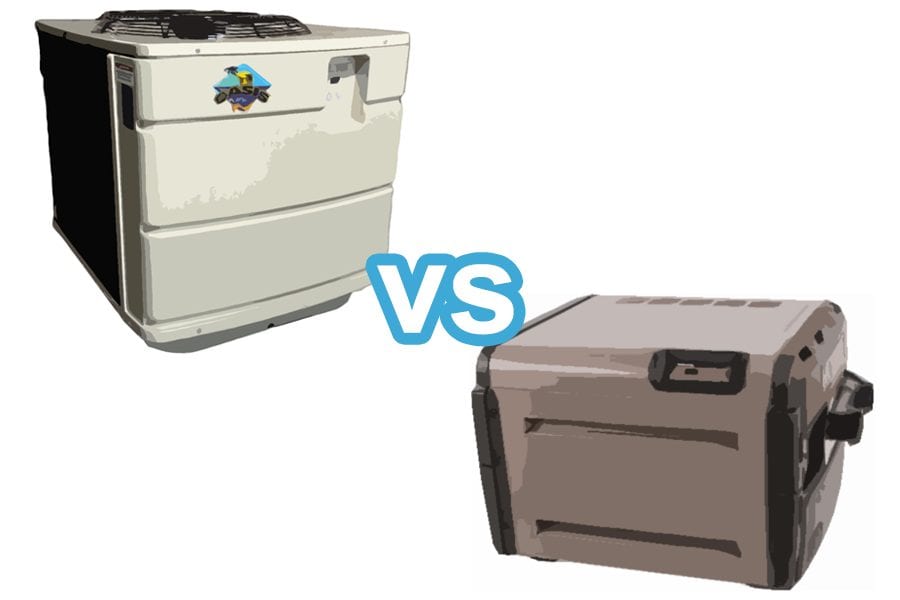


Heat pump pool heaters vs gas: which is best?
The main idea here is energy efficient heating vs fast heating. While heat pumps offer an affordable heating solution ideal for most climates, they’re heating speed is slower when compared to gas heaters.
Gas heaters offer substantially faster heating speeds at the cost of, well, money— gas is expensive.
In most situations, gas heaters are seen more often in small spas or used as backup heaters to heat pumps for those frigid days.
Heat pump pool heaters vs solar: which is best?
Another great question that pops up in the pool industry more often than surprise algae right before a summer pool party.
Again, answering this question comes down to preference. However, since both heaters focus on energy efficiency, comparing the two is a little different. But to keep things brief, we’ll summarize it down to this: solar pool heaters offer some of the most affordable pool heating available, but they cannot be used on demand due to the nature of their heat source (the sun).
Heat pumps offer energy efficient heating on-demand, whether the sun is out or not.
Of course, it doesn’t always have to be one or the other. There is…a third option. You can read about it here: Heat Pumps vs Solar Pool Heaters
That pretty much takes care of all the FAQs on the topic of heat pumps. Hopefully, now you have a better understanding of how they work and whether they’re the right choice for you. Of course, there are a few other cool facts about heat pump pool heaters that we didn’t get to include yet.
But don’t worry, they’re all summed up into this next bonus section.
11 Reasons To Use a Heat Pump



1.) They’re eco-friendly
Using R410A refrigerant and non-combustive heating, heat pumps emit zero harmful emissions. This makes them very environmentally friendly. Unfortunately, the same can’t be said about gas pool heaters.
2.) They’re way more energy efficient than other pool heaters
Just how much is “way more”? Well, heat pump pool heaters are four times more energy efficient than gas, and nearly six times more energy efficient than electric resistance.
3.) They last a long time
As we mentioned earlier in the post, most heat pumps can easily last 10-20 years, which is impressive compared to other pool heater types. But what’s more impressive is knowing how easily a heat pump’s lifespan can be extended with good maintenance habits.
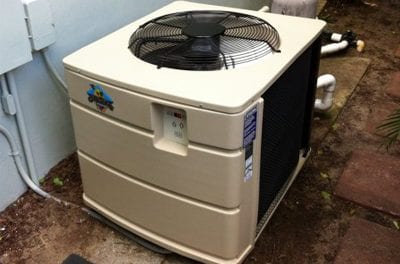


4.) They’re quiet
For the most part, almost all heat pumps operate at a fairly low volume. Usually quiet enough to fade into background noise.
But for those who appreciate silence in all its golden glory, there are some heat pumps that are even quieter, operating at volumes as low as 50db.
5.) They’re affordable
Heat pumps may be the only type of pool heater that’s affordable in both the short term and long term. By this, we mean that they’re fairly low-cost to both install and operate.
This is important because while other pool heaters may be cheaper off the bat, the savings is usually offset by expensive monthly heating costs. With heat pumps, that isn’t a problem.
6.) They extend your pool season
Without a pool heater, your swim season is pretty much limited to whenever it’s warm enough to swim. But with a heat pump, you can enjoy comfortably temperate water whether it’s 100 degrees out or 70.
Plus, you can open your pool earlier and close it earlier. All of which means more time to swim and enjoy good company in the comfort of your own backyard.
Now THAT’s getting the most out of your swimming pool.
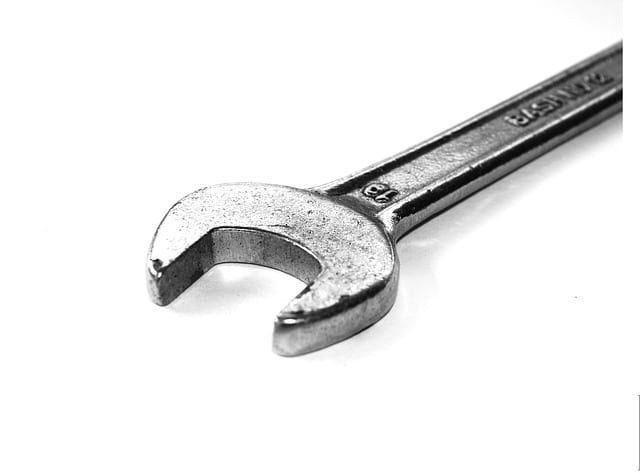


7.) They’re easy to maintain
Heat pump pool heaters are robust, so you won’t have to regularly take them apart and clean tiny gears or anything like that. A bit of good housekeeping and basic heat pump maintenance goes a long way in keeping your heater in good shape.
8.) Easy to use
Turn on your pump, power on the heater, set your desired temperature, and you’re done. It’s really that simple.
With easy-to-ready displays and push button controls, heat pumps are easy to use and won’t leave you scratching your head in frustration.
9.) They’re simple to repair
If and when you run into some problems, reliable heat pump pool heater repair is just a phone call away. For some pool owners, having a professional heat pump technician handle the work is the preferred choice.
But for those DIY pool owners willing to get their hands dirty, LIVE pool heater troubleshooting can be an excellent alternative.



10.) They’re great for all climates
Whether you live in the east or west coast, north or south, a heat pump works great. With operation limits down to 40 degrees (in the 30s for more advanced heat pumps), they provide more than enough heat to extend your swim season and enjoy comfortable swims when you want to.
But did you know that some heat pumps can also cool your pool when it gets too hot? Now that’s convenient.
Bonus Fact: If you live on the seacoast, a heat pump is especially great due to its corrosion-proof titanium heat exchanger. No more salt damage!
11.) They’re technically “solar heaters”
Although they don’t utilize solar panels, heat pumps still use heat energy created by the sun as their primary energy source. Without the hot temperatures produced by the sun, heat pumps wouldn’t really work all that well.
Closing thoughts
So there you have it, everything you need to know about heat pumps swimming pool heaters. From their exceptional energy efficiency and performance to their affordability and convenience — the secret to this pool heater’s popularity is no secret at all. If you need a reliable way to heat your pool that stays within budget, but doesn’t sacrifice your ability to swim when you want, then a heat pump is a great choice. Period.

